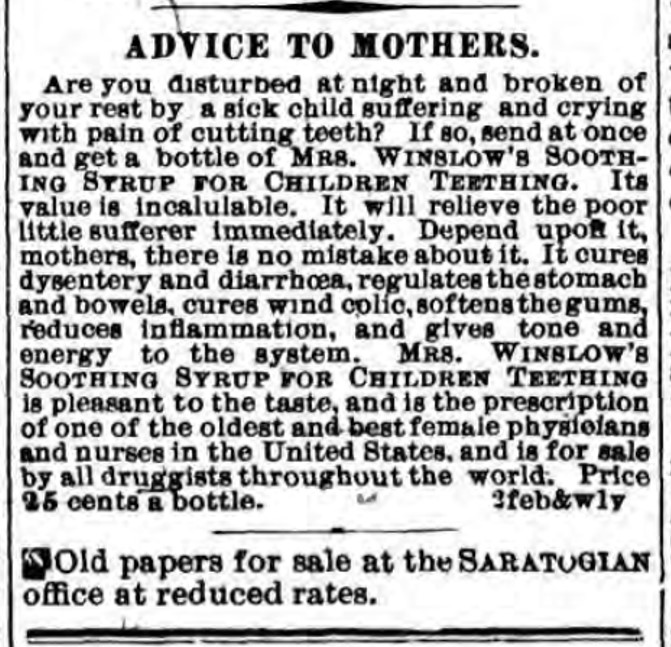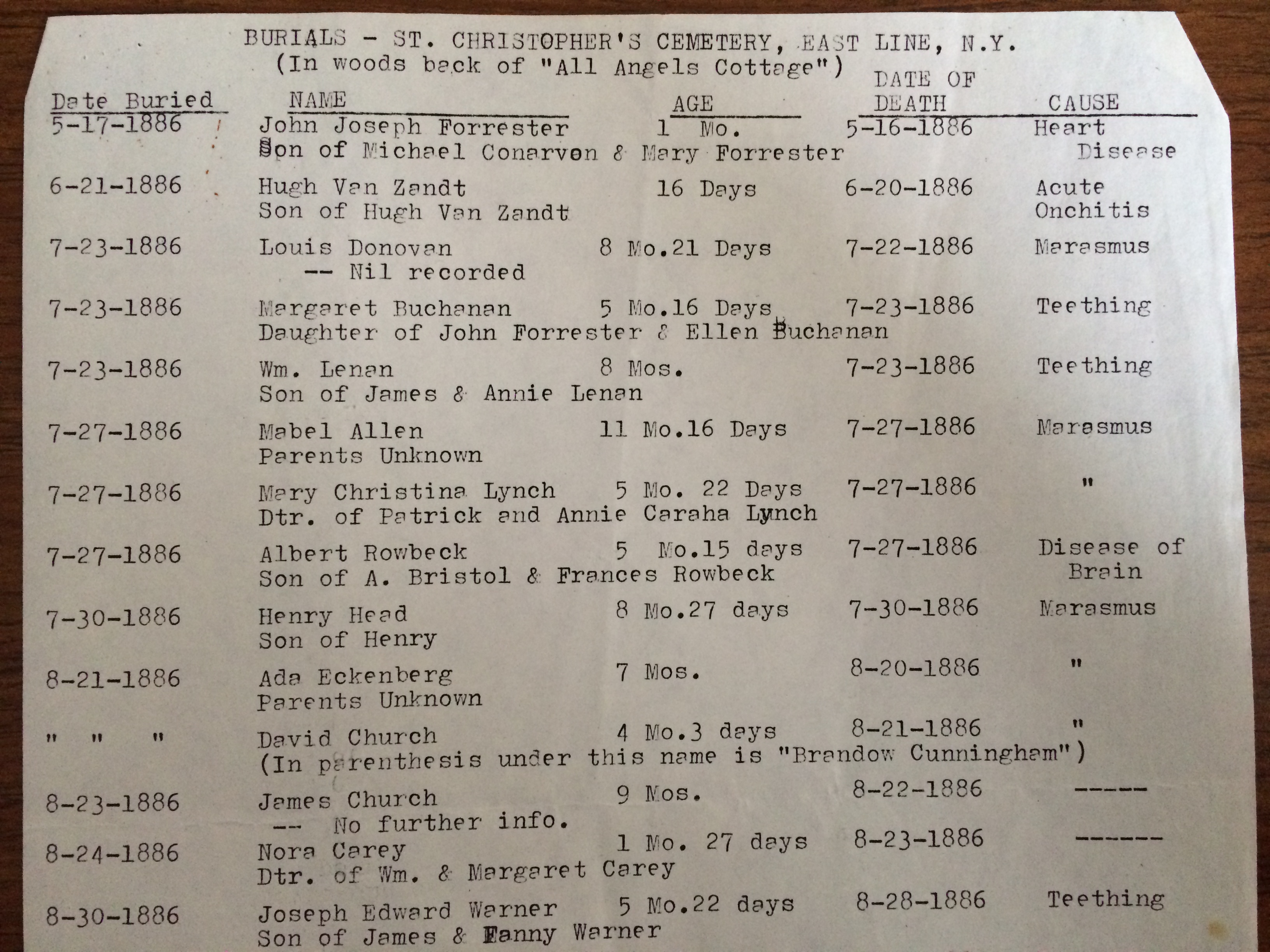As is often the case with historical research, tangents can lead to some interesting discoveries. While searching for other information in nineteenth century newspapers, we stumbled upon this advertisement.
Teething is one of the many challenges of both childhood and parenthood. It is a painful, tiring, and patience-testing experience for all involved. One hundred years ago, mothers frequently saw advertisements offering relief for their babies and promising rest to exhausted parents. Mrs. Winslow’s Soothing Syrup was advertised in many major newspapers, on postcards, and in ladies’ magazines. In fact, tiny glass vials with “Mrs Winslow’s” in raised letters on the side are frequently found in nineteenth century dump sites and during archeological digs.
The syrup seemed to be a magic elixir, curing all ailments of childhood, especially the pain related to teething. However it had a dark secret. It is hardly surprising that this syrup “relieved the poor little sufferers immediately,” as it contained a potent combination of alcohol and morphine. While it is important to note that not all mothers used this product, there were many who did. According to some accounts, the company sold 1.5 million bottles in 1868.
In 1866, Statistics of the United States in 1860 was published. For anyone interested in medical history, statistics, and social history, this is a fascinating resource. According to this volume, teething caused 493 deaths in New York State in 1860.
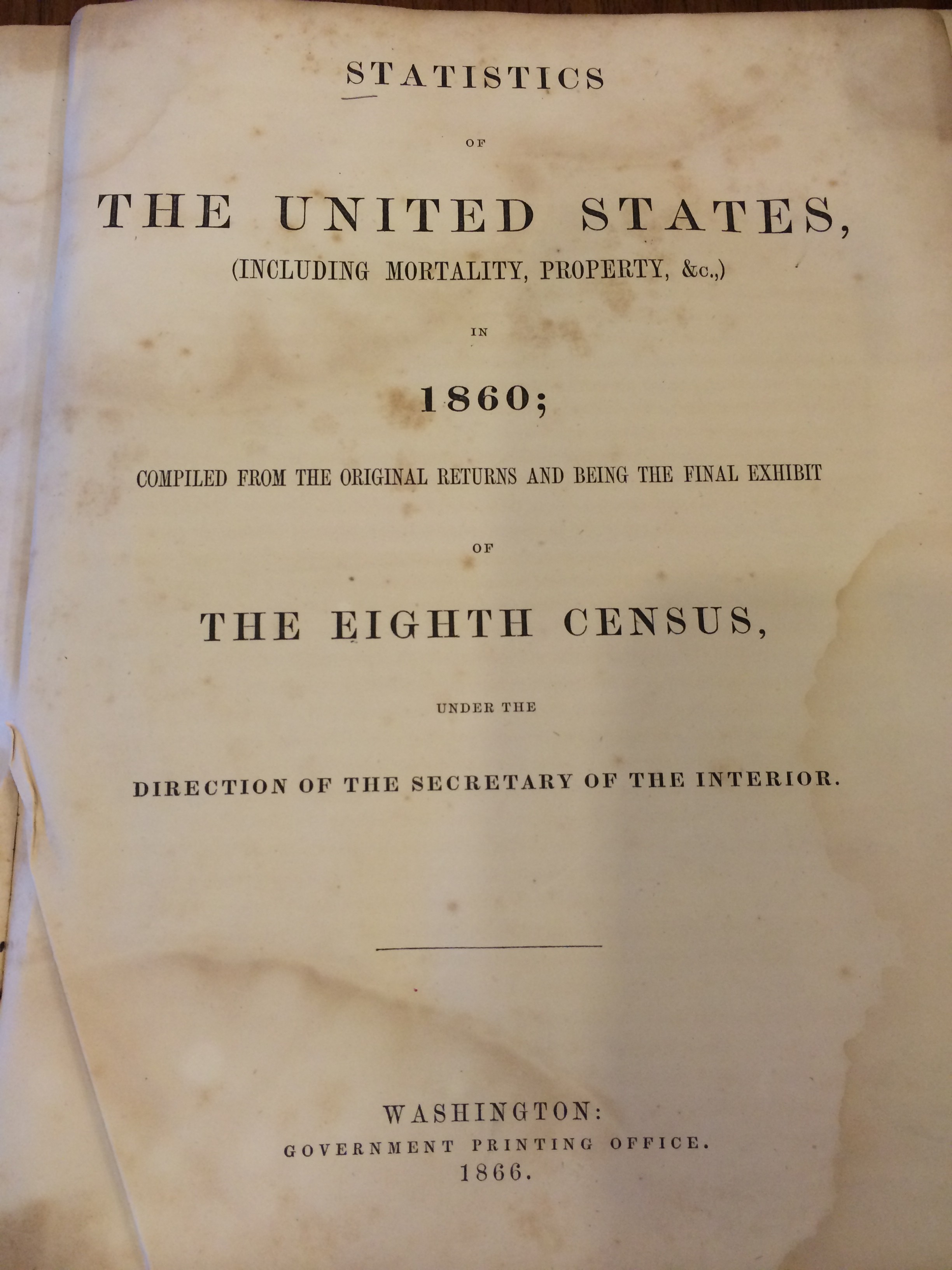
- Brookside/SCHS Collection. 1968.053.0002 This volume can also be accessed at: https://books.google.com/books?id=VK1CAQAAMAAJ&source=gbs_navlinks_s
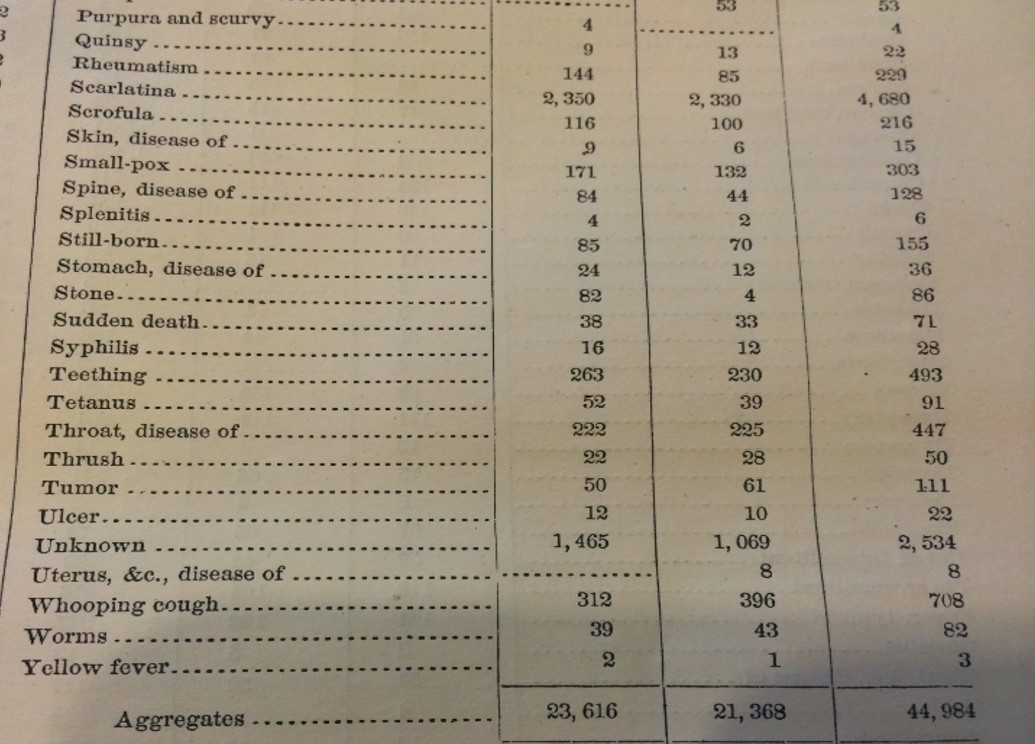
- Brookside/SCHS Collection. 1968.053.0002 This volume can also be accessed at: https://books.google.com/books?id=VK1CAQAAMAAJ&source=gbs_navlinks_s
While somewhat painful and inconvenient today, teething isn’t generally thought of as a fatal condition. It seems quite likely that aggressive treatments often caused the fatalities, not the process of teething itself. In addition to Mrs. Winslow’s Soothing Syrup, some recommended lancing children’s gums to “ease” the eruption of teeth. This could lead to infections that were difficult or impossible to treat in an era before effective antibiotics. One local orphanage along East Line Road in the town of Ballston may have had a matron in the 1880s who preferred to aggressively treat teething infants. Among the typical illnesses of childhood, the records also list at least three teething fatalities.
By the early 20th century, many were beginning to question the necessity of teething “treatments” and sharply criticized the company that distributed Mrs. Winslow’s Soothing Syrup. The June 1915 issue of Good Housekeeping offered an article entitled “Another Soothing Syrup Victim” describing the death of a young medicated child and vehemently argued that the syrup should be removed from the market. It remained available through the 1930s.
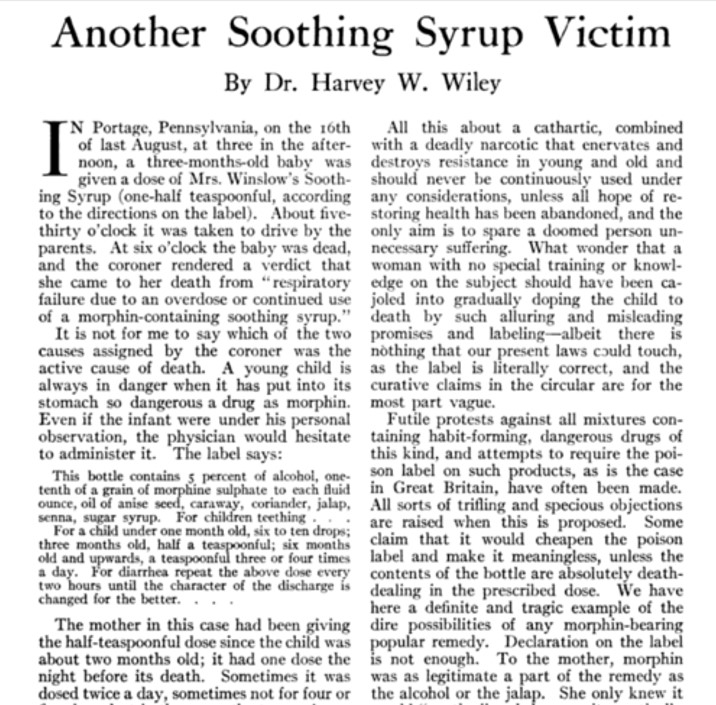
- Good Housekeeping: June 1915, Page 709 https://books.google.com/books?id=7Ms2AQAAMAAJ&source=gbs_navlinks_s
This is a particularly jarring and sad example of some of the darker realities of life long ago that illustrates, especially in this case, that medical and social progress has led to a higher quality of life for children and parents alike.


